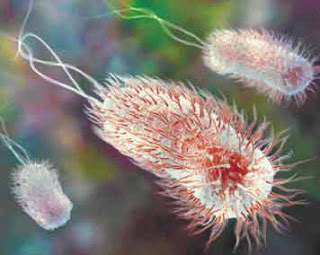WASHINGTON — A new, virulent and drug-resistant strain of E. coli bacteria is infecting people in the United States and posing a significant public health threat, doctors reported on Friday.
The new strain is called ST131 and caused many of the E. coli infections resistant to antibiotics in the fluoroquinolone and cephalosporin classes, the researchers said.
“If this strain gains one additional resistance gene, it will become almost untreatable and will be a true superbug, which is a very concerning scenario,” Dr. James Johnson of the VA Medical Center in Minneapolis, who led the study, said in a statement.
Writing in the journal Clinical Infectious Diseases, Johnson and colleagues said the ST131 strain has been reported in several countries and across the United States.
They tested samples from 127 patients with E. coli infections that resisted strong extended-spectrum cephalosporin and fluoroquinolone antibiotics in 2007. Of these, genetic tests showed 54 were from the new ST131 strain.
Those samples accounted for only 17 percent of the total, but they made up 44 percent of the drug-resistant isolates. More alarming, they made up more than half of the samples resistant to two or more drugs and they accounted for nearly 70 percent of the samples resistant to fluoroquinolones or extended-spectrum cephalosporins.
Those drugs increasiningly are used as the go-to treatment for many conditions, including urinary tract infections, and in hospitalized patients.


Be the first to comment on "Drug-resistant strain of E.coli emerges in the U.S."